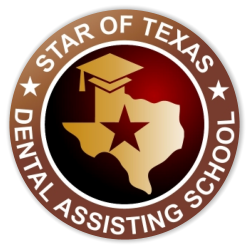Dentistry is the branch of the healing arts and sciences devoted to maintaining oral health. It is a dynamic health profession, offering opportunities to become a successful, highly respected member of the community.
Dentists enjoy excellent compensation and the high demand for dental care is likely to continue in the future. The realization that oral health can have a serious impact on systemic health drives the expansion of new professional opportunities each year.
A degree in dentistry offers a number of career options, including:
Academic dentistry
Private practice either as a general dentist or specialist (self-employed, employee, associate/ partner)
Dental research
Dental public policy
International health care
Federal government (military dentist)
Approximately 80% of all dentists practice general dentistry. General dentists treat all patients, adults and children, in many different treatment facilities and settings. General dentists are graduates of dental school and hold a D.D.S. or D.M.D. degree. The D.M.D. and the D.D.S. are equivalent degrees that are awarded to dental students upon completion of the same types of programs.
Some dental school graduates opt for one or two years of additional education in a general practice residency or advanced education in general dentistry program, rather than immediately going into practice.
General dentists:
Use the latest techniques and equipment to examine the head, neck and oral cavity to determine the oral health of the patient and identify and diagnose oral conditions that may manifest into systemic disease.
Use the latest radiographic and computer-generated imaging as well as other specialized diagnostic techniques to identify diseases of the teeth, supporting bone, gingival tissues and other tissues in the oral cavity and head and neck.
Restore and replace teeth damaged by decay, lost from trauma or disease, with newly developed dental materials, implants and crown and bridge techniques.
Perform corrective surgery on gums and supporting bones to treat gum disease.
Extract teeth when necessary using the most up-to-date anesthetic techniques.
Eliminate pain arising from oral diseases, conditions and trauma, making use of prescriptive medicines to reduce pain and discomfort.
Correct badly positioned teeth to improve chewing, speech, digestion of food and appearance.
Oversee the administration and business of private practice and frequently employ and supervise a large number of staff and allied dental personnel to help treat their family of patients.
Evaluate the overall health of their patients including taking and evaluating comprehensive medical histories.
Provide instruction and advice on oral health care and preventive measures to maintain healthy oral tissues and prevent oral disease.
Provide instruction and advice on oral health care, including individualized diet analysis, brushing and flossing techniques, the use of fluoridated products and other specialized preventive measures to maintain healthy oral tissues and prevent oral disease.
There are a number of dental specialties:
Endodontists diagnose and treat injuries that are specific to the dental nerves and pulp (matter inside the tooth).
Oral and maxillofacial pathologists study and research the causes, processes and effects of diseases with oral manifestations.
Oral and maxillofacial radiologists take and interpret conventional, digital, CT, MRI and allied imaging modalities of oral-facial structures and disease.
Oral and maxillofacial surgeons provide diagnostic services and treatment for injuries, diseases and defects of the neck, head, jaw and associated structures.
Orthodontics and dentofacial orthopedists diagnose and treat problems related to irregular dental development, missing teeth and other abnormalities.
Pediatric dentists treat children from birth to adolescence.
Periodontists provide corrective surgery on gums and supporting bones to treat gum disease.
Prosthodontists restore and replace teeth damaged by decay or lost from trauma or disease, with fixed or removable appliances constructed with newly developed dental material.
Dental public health specialists develop policies and programs, such as health care reform, that affect the community at large.
Working Conditions
Approximately 90% of all dentists are engaged in delivery of care through private practices. Full-time dentists spend approximately 36 hours per week in their practices, of which approximately 33 hours per week is spent treating patients. They have great flexibility in determining the number of hours per week they choose to work.
The remaining 10% of dentists teach in dental education programs, conduct research and/or deliver care in the Armed Forces, the Indian Health Service, the U.S. Public Health Service or other clinical settings. Dentists engaged in teaching, research or related positions generally work regular 40-hour workweeks.
By: Explore Health Careers
http://explorehealthcareers.org/en/Career/1/Dentist

